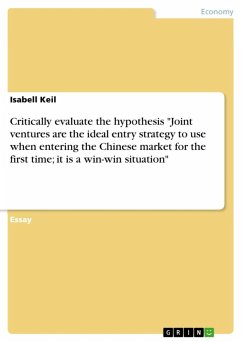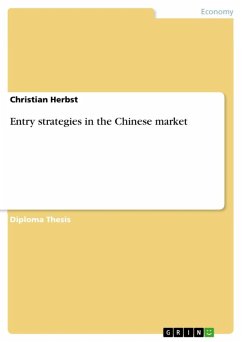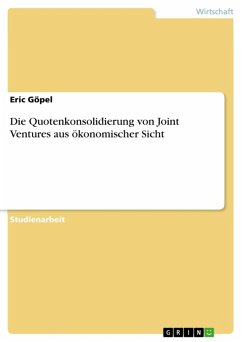Essay from the year 2003 in the subject Business economics - Trade and Distribution, grade: 1,7 (A-), University of Glamorgan, course: International Business and Export Management, language: English, abstract: The People's Republic of China (PRC) is the last Communist State in the world (Roberts and Kynge, 2003). Mao Zedong, the leader from 1949 until 1976, pursued a radical politicsorientated and self-sustained policy, which "had China's door closed in front of the foreign countries" (Yahoo! Inc., 2003). Deng Xiaoping succeeded Mao Zedong and launched his economic reform programme, called the "Open Door" policy, in 1978, which encouraged foreign investment (Yahoo! Inc., 2003). This was the beginning of a new era for China. A great deal of international investors tried to gain a foothold in China's fast growing markets in the form of joint ventures or direct investment. This paper is devoted to the joint venture (JV), and investigates whether or not this form of enterprise is the ideal strategy to enter the Chinese market. After a short survey of the Chinese economy, JV's will be defined. The explanation of JV's is made under consideration of the distinctive features of the Chinese culture. A lot of enterprises and JV's as well failed because it is not easy to deal with the Chinese. This essay reports about failures of a Western JV and tries to examine the causes. Examples of successful JV's are described as well before concluding whether or not "Joint ventures are the ideal entry strategy to use when entering the Chinese market for the first time; it is a win-win situation".
Dieser Download kann aus rechtlichen Gründen nur mit Rechnungsadresse in A, B, BG, CY, CZ, D, DK, EW, E, FIN, F, GR, HR, H, IRL, I, LT, L, LR, M, NL, PL, P, R, S, SLO, SK ausgeliefert werden.









